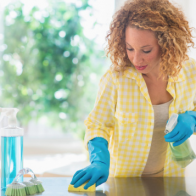 Nearly one billion people live without clean water, and of the 1.56 million related deaths that occur each year, 90% are children. At times, it feels like the clean water crisis is the equivalent of world hunger: too big to solve and simply “just the way it is.” With bacteria such as E.coli, Salmonella typhi, Schistosoma, Cholera vibrosis, and Hepatitis A living in every scoop of water that some children take to their mouths, perhaps it is time that we bring this necessity to the equivalent of a mandatory human right.
Nearly one billion people live without clean water, and of the 1.56 million related deaths that occur each year, 90% are children. At times, it feels like the clean water crisis is the equivalent of world hunger: too big to solve and simply “just the way it is.” With bacteria such as E.coli, Salmonella typhi, Schistosoma, Cholera vibrosis, and Hepatitis A living in every scoop of water that some children take to their mouths, perhaps it is time that we bring this necessity to the equivalent of a mandatory human right.
Recently, I moved to Salvador (Bahia), Brazil, known for its beautiful beaches and rich culture stemming from the African Diaspora. I live in a middle class neighborhood with running water, but close by is abject poverty and people that are drinking, bathing, and using the bathroom in the same ocean. However, there are even usage limitations for the running water in my house. It can only be used for bathing, so I have too cook and drink from bottled water sold at the market. Imagine coming home late in the evening after the market is closed hungry and you realize that you’re out of bottled water when you want to cook dinner. It’s an irritating health requirement, and unacceptable when there’s more than enough resources in the world to deliver fresh drinking water to every individual’s faucet.
Regardless, one day, I decided to test the “boiled water equals sanitization” theory that most believe. I boiled some water taken directly out of my kitchen faucet. The pot was clean. The water looked decently clean. But what resulted after twenty minutes of boiling did not look clean. There was a small, round, soft-looking brown object floating in my pot, which killed my appetite for hours and reassured that I would make the trek from the market to my house to get bottled water for everything.
 As someone that grew up American with clean water privilege, it’s definitely eye opening to see that the majority of people in other countries don’t live by us. According to the non-profit organization Charity Water, women and children usually bear the burden of spending 40 billion hours every year walking miles for water, which isn’t even clean. Along this walk they’re subject to a greater risk of sexual harassment and assault in addition to the fact that hauling water for long distances can take a toll on an individual’s spine.
As someone that grew up American with clean water privilege, it’s definitely eye opening to see that the majority of people in other countries don’t live by us. According to the non-profit organization Charity Water, women and children usually bear the burden of spending 40 billion hours every year walking miles for water, which isn’t even clean. Along this walk they’re subject to a greater risk of sexual harassment and assault in addition to the fact that hauling water for long distances can take a toll on an individual’s spine.
While I can purchase bottled water due to my economic privilege and nearby market, I’ve seen far too many families that don’t have access to this basic human necessity. I’ve visited countless countries in which poverty reigns and it’s tragic to see a person getting sick from something that’s easily fixable with the proper government and international support. I just can’t grasp why it’s acceptable for certain populations to have access to clean water over others.
Wouldn’t you agree that clean water is a human right? Weigh in.







YES!!!! What other response to your query could there be?